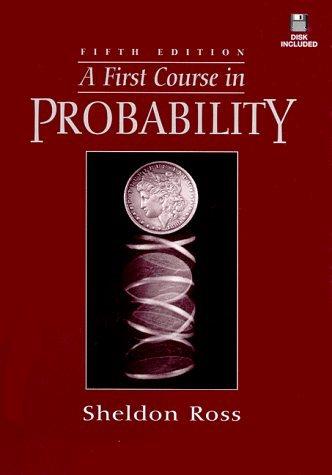44. Consider a population consisting of individuals able to produce offspring of the same kind. Suppose that
Question:
44. Consider a population consisting of individuals able to produce offspring of the same kind. Suppose that each individual will, by the end of its lifetime, have produced j new offspring with probability Pj, j ≥ 0, independently of the number produced by any other individual. The number of individuals initially present, denoted by Xo, is called the size of the zeroth generation.
All offspring of the zeroth generation constitute the first generation, and their number is denoted by X₁. In general, let X, denote the size of the wth generation. Let µ = ∑ JP, and σ² = ∑ (j - µ)²P, denote, respectively, j=0 j=0 the mean and the variance of the number of offspring produced by a single individual. Suppose that X = 1 -that is, initially there is a single individual in the population.
(a) Show that E[X,|X₁-1] = µE[X₁-1]
(b) Use part,
(a) to conclude that E[X] = µ^
(c) Show that Var(X) = σ²µ^(n-1) + µ² Var(X_1)
(d) Use part
(c) to conclude that Var(Xn) =
σ²µ^(n-1) - (µ^(n-1) - 1)
σ²
if µ ≠ 1 no²
if µ = 1 The case described above is known as a branching process, and an important question for a population that evolves along such lines is the probability that the population will eventually die out. Let w denote this probability when the population starts with a single individual. That is,
π = P(population eventually dies out | Xo = 1)
(e) Argue that π satisfies
π = ∑ Pjπ^j j=0 HINT: Condition on the number of offspring of the initial member of the popu-
lation.
Step by Step Answer:







